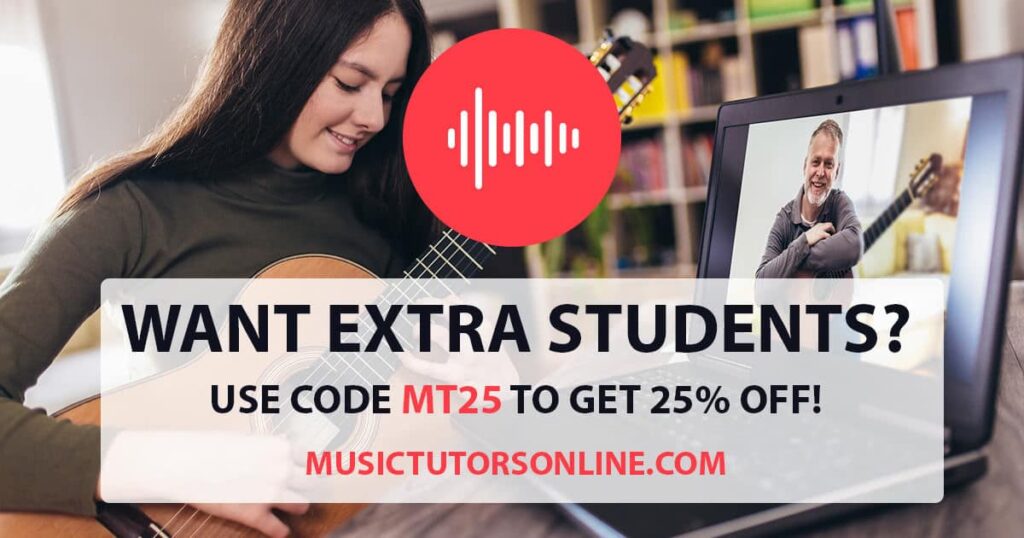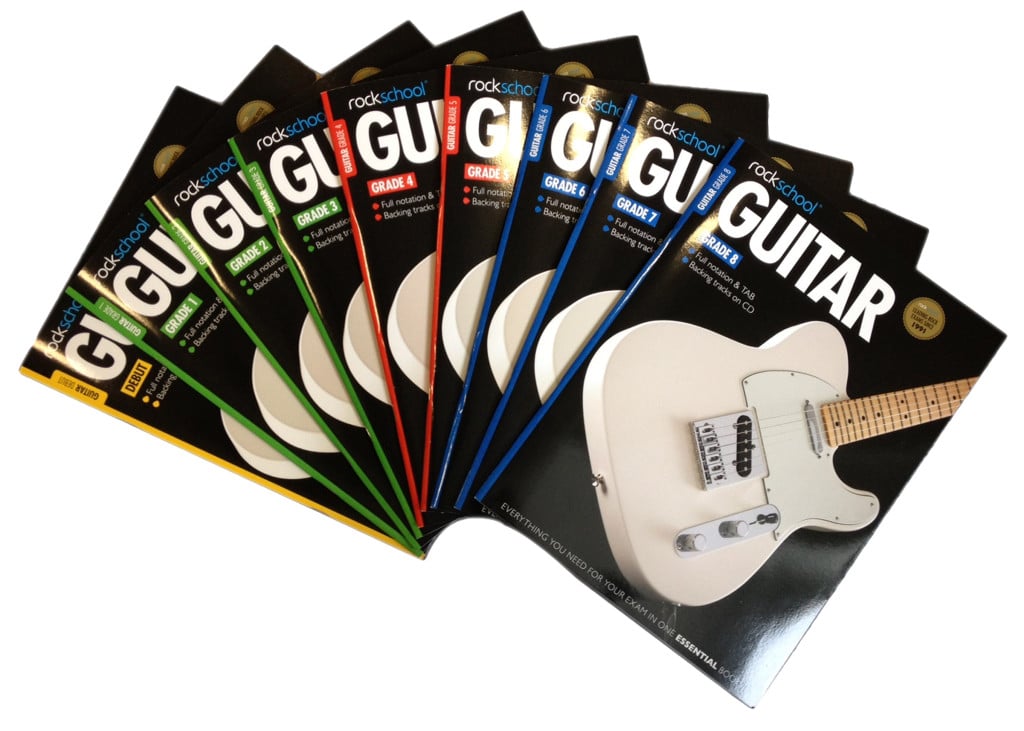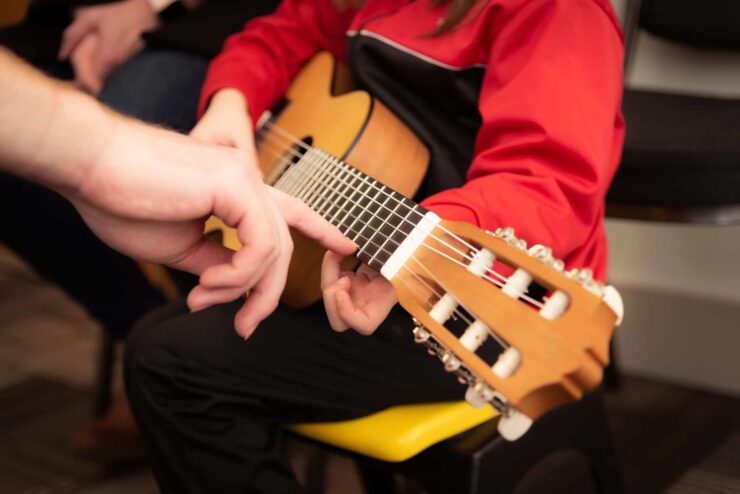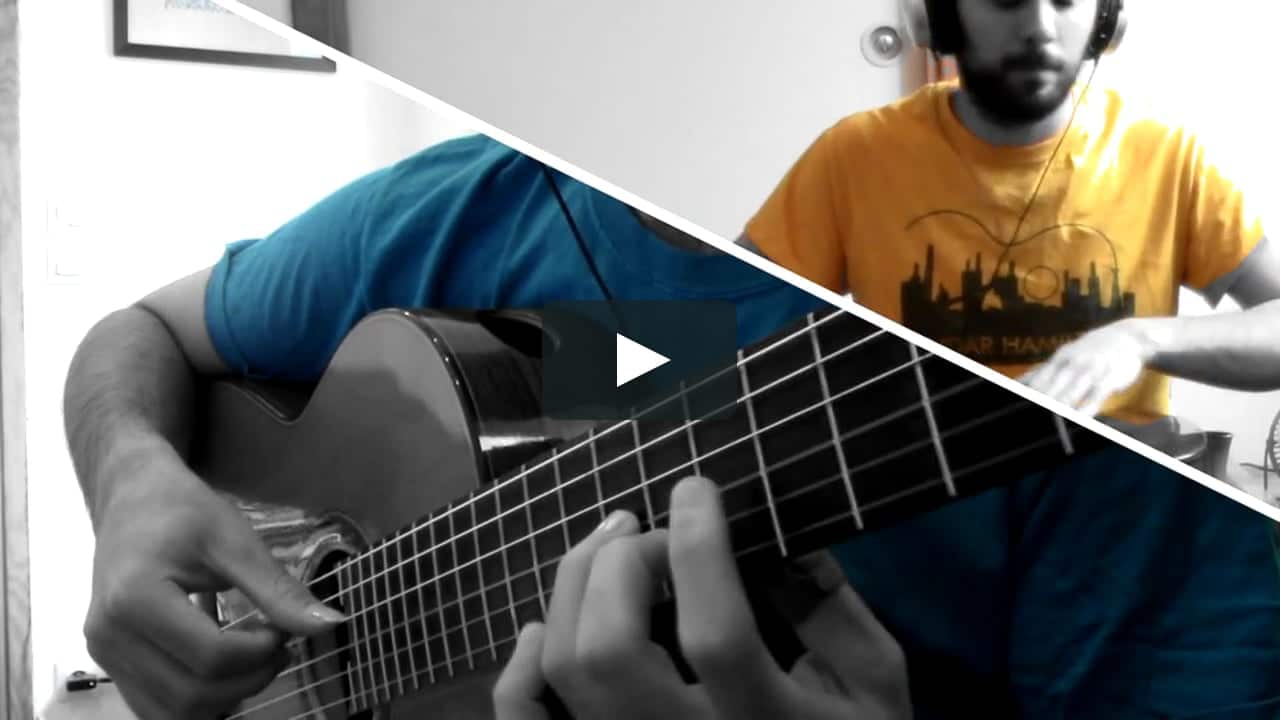Teaching your instrument can be a fantastic way to supplement your live performance income, or a complete career in it’s own right. Aside from the obvious financial incentives, there is nothing quite like watching your students make progress and have fun.
If you’re thinking about teaching, there are several very important factors to consider before you begin to recruit students.
- What kind of teacher do you want to be?
- Do you want the flexibility of teaching private students or the relative financial security of a salaried teaching position?
- What ages are you prepared to teach from?
There are a lot of decisions to make!
Key types of teaching roles available to musicians
Private Tuition
Usually one-to-one or in small groups, private teaching involves you sourcing your own students and then teaching them either from home, traveling to them or from another location (such as a music store). You will set your own rate of pay (usually per hour) and organise the schedule.
If you’re looking to get yourself set up as a private tutor, you should consider registering with Music Tutors Online. After you’ve built a profile, you can have direct contact with prospective students and begin to build your roster of pupils. As a thank you for reading this LMM blog, use the code MT25 for 25% off!

Peripatetic Tutor
Several schools and local councils hire professional musicians to come into schools and offer lessons to students. The individual schools will provide you with students and then your payment will be taken care of by either the school, or local authority (usually a set fee per hour).
Private/ Charity ran Music School Position
Though sadly not high in number, there are several after school/ extra curricular music projects that have either been founded by charity, or by private individuals. This will usually comprise of a small team of teachers (that may teach multiple instruments) and someone to handle the admin. You will be paid a percentage of what the school earns from your lessons and will probably share the responsibility to source new students.
School Teaching
While it could well be argued that this requires more of an ambition towards education exclusively, teaching music in schools can be a very rewarding experience. For more information on becoming a full time teacher, visit the .Gov site.
University Lecturing
Lecturing in a university will not only require the relevant qualifications, but extensive experience in a field relating to what you are looking teach. While there will often be peripatetic jobs available in university, these will still require tuition to be of a very high standard.

Before you begin teaching…
Once you’ve decided upon your initial job role, the next step is to have a very honest (and perhaps slightly uncomfortable) conversation with yourself about your own strengths and weaknesses as a player/instrumentalist, or vocalist.
If you’re looking to teach within a school or university environment, you’ll need a very comprehensive knowledge of theory and probably be able to competently read music.
If you’re teaching privately or within a charity ran project, then your knowledge of theory can afford to be more practical, with a focus on relative major/minors, chord construction etc.
CRB/DBS
If you are going to be teaching in any capacity, then you will almost certainly require a criminal records check, now known as a DBS. If you’re working in a school, then they will usually cover the cost of this.
However, if you’re teaching privately, you can undertake this online by visiting their website and paying a small fee.
Register as self-employed
If you haven’t already done so, you should really register as self employed as soon as you begin to teach.
Any money earned, whether paid in cash or not, is still taxable. On the flip side of this, it does mean that you may be able to claim back legitimate expenses that you incur during your teaching.
This could include teaching materials and possibly travel, although this should be discussed with a tax advisor if possible.
Teaching a syllabus or curriculum
If you are looking to teach within a school or existing establishment, chances are they will already have a framework in place from which you’ll draw material.
Someone within the school could have written this or it may be one of the national music qualifications, such as Rockschool or ABRSM.
If you’re planning to teach any of these courses, you may want to consider undertaking their tutors exams.
Alternatively, if you are teaching privately, you may wish to create your own syllabus. The advantage of this is that you can tailor your lessons to what your students want to learn and the rate at which they do.

Consider your insurance
There are several different forms of insurance you’ll need as a teacher, and several factors that might influence your current insurance set up.
For example, if you’re teaching from home, you should check if using your home as a place of business effects your insurance, and make sure that you’re covered.
Similarly, if you are travelling to your students or teaching from a music store, you’ll almost certainly need Public Liability Insurance, in case any accidents happen when you’re out of the house.
You’ll also need to check with your car insurance, as changing use or job titles may influence your quote.
You can read more about both these subjects in our Last Minute Musicians blog on car insurance for musicians and our article on PLI.
Recruiting Private Students
Now you’ve decided where and what you want to teach, it’s time to go about finding some students!
Amazingly, there are a few traditional methods advertising that still apply today just as much as they did 50 years ago.
However, with more and more advertising being done online, a good web presence is a great place to start.
Website – Initially your website alone may not generate many enquiries (unless you have very good Search Engine Optimisation). However, it will still act as a great base to which you can send all potential clients for information on your background, fee’s and other info. Make sure to include a biography and any other relevant information.
Physical Advertising – While the newsagent’s window may no longer be the go-to place for buyers and sellers, don’t under estimate the power of physical advertising. See if a few local businesses will let you put a stack of business cards somewhere – maybe even consider advertising in any local news (parish magazines are ideal).
Top tip: Whilst you probably aren’t the first to have the idea, it may be worth checking if your local music store has a go-to teacher they recommend to those purchasing a new instrument.
Word-of-mouth – This is perhaps the oldest and still most effective form of advertising… once you start getting your first set of students, they will hopefully start to spread the gospel on how brilliant their new tutor is!
Top tip: Always make sure you mention to friends and family that you are now giving lessons. You might be surprised at the results!
Social Media – One of the more recent and most lucrative forms of advertising yourself as an instrumental tutor or vocal instructor is on social media. Facebook is usually going to be the easiest way of getting started – if you haven’t already, make sure you join the last minute musicians ran UK Music Teachers group that is designed to put students and potential tutors in contact.
If you have a professional/artist or band Facebook page, consider advertising your services on the page (with the permission of any other admin/members!) as well as advertising on your personal page.
However, you may want to consider setting up a likeable page (purely focusing on tuition) and sharing posts from that, as this looks far more professional.

Setting your price
While this is always slightly difficult, you have to be able to balance your self worth with your need to recruit new students.
Several natural market factors will come into play here – Do you want to charge a higher amount and risk turning away potential students or would you rather have more students paying less?
If you specialise in certain styles, you may potentially be able to charge more that the average rock/pop lesson. Classical or flamenco guitar, or opera singing would be prime examples.
In this respect, you should also get to know your audience a little. While this is an obvious generalisation, those looking to learn Jazz guitar may tend to be a little older and thereby have a little more disposable income.
Once you have your first students…
Consider bulk-buy style incentives
If you are looking to make more cash in the short term, you can always offer a slight discount on those willing to purchase their lessons in advance. EG anyone paying for 10 lessons upfront receives 10% off.
In person vs Skype
With the invention of Skype, it is now possible to video call anyone, anywhere in the world and chat face to face for free. If you have a specific niche in your playing, you may even be able to build up a list of international students.
Equipment
Take some time to think about what you want to provide for students – remember that there is significant scope for equipment being damaged (especially by children).
Data protection compliance
With the new laws that have come into place regarding data protection (now known as GDPR) it’s important that the information you hold about your pupils be protected correctly. For example, making sure that any information you have is stored appropriately and securely.
You can read more about it in our blog on GDPR, and on the Musicians Union website.
Stay on top of planning as best you can
Whether you are teaching your own syllabus or an existing one, try to stay one step ahead and always have your lessons planned out in advance.
Keep a log of what each student is working on and what you want to teach them next.
Get to know your students
All your students are only ever going to take to their instrument if they feel like they are having fun and learning at the same time.
Take an interest in what music they like and see if you can work this into lessons.
Having lesson plans is a great idea, but let your students guide the style in which you teach.
If you haven’t already, consider joining Last Minute Musicians Facebook group UK Music Teachers for more advice, networking with fellow professionals and sourcing new students!
For students looking for advice on safely finding a teacher please read our complete guide to music lessons for students.
If you have any more tips please let us know in the comments below!
Share this:




















